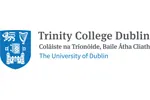About Italian, BA (Hons) - at Trinity College Dublin
Italian can be studied either in combination with one other subject as part of a two-subject moderatorship (TSM) programme or be selected as one of the two languages studied in the European studies programme. Within the joint honors TSM programme both subjects are studied for three years and one subject only is studied in the fourth year. Within European studies both languages are studied equally for the first year after which one is studied as the major language and the other becomes the minor language. Italian can be studied ab initio (from beginners' level).
OverviewItaly has played a leading role in European civilisation, and today is one of the major economies of the world, famous for its style, design and innovation in many fields. Although Italian can be hard to find in the Irish school curriculum, there is widespread interest in Italy, its people and culture. The courses at Trinity offer an opportunity to develop this interest in a systematic way. They are also designed to help you meet the challenge of becoming proficient in a new language, as you can study Italian here as a complete beginner.
Is this the right course for me?Italian is a very good subject choice if you have a natural flair for languages, if you enjoy travelling to foreign countries and exploring their cultures, or if you want to follow a career in the multilingual Europe of today.
Italian is a small Department, with close contact between students and staff; you will receive individual attention and will be encouraged to discuss your progress at all times.
The Freshman yearsIn the Junior Freshman (first) year you will follow an intensive beginner's course in grammar, translation, conversation, language laboratory and video work, with an emphasis on the communicative use of Italian. The language is studied in varied and innovative ways, using books, computers, audio and video tapes, conversation classes and a good deal of hard work on your part and on the part of staff alike.
There are about eight classroom hours per week, most of the time being devoted to language learning in your first year. Each week includes several hours of grammar, one conversation class and one audio lab hour, and computer assignments to be done independently. You will be introduced to modern Italian poetry, drama and fiction in your second and third terms, through two weekly lectures.
In the Senior Freshman (second) year students take courses in language, core literary texts and follow an optional subject in an area of particular interest which may include Italian history and society; Goldoni; Carlo Levi and Ignazio Silone.
The Sophister yearsThe Junior and Senior Sophister (third and fourth) years of the course focus on the major authors of the medieval, Renaissance and later centuries, with options in modern Italian literature, history and society, and in linguistic topics such as the theory and practice of translation. You can also opt for courses in theoretical and applied linguistics if this area interests you. There is a continuing emphasis on strengthening your language proficiency and, with this in mind, some of your language work is done on computers so that you acquire computer literacy and develop word-processing skills in Italian.
Considerable emphasis is placed on the development of critical abilities through independently researched essays and assignments, especially in the Senior Sophister (fourth) year. In this, your final year, the programme includes courses on Italian language varieties, the works of Dante, the history of language and a wide selection of optional topics for study in depth. However, the most distinctive element of this year will be the preparation of your degree thesis of some 15,000 words, which will be based on independent research.


